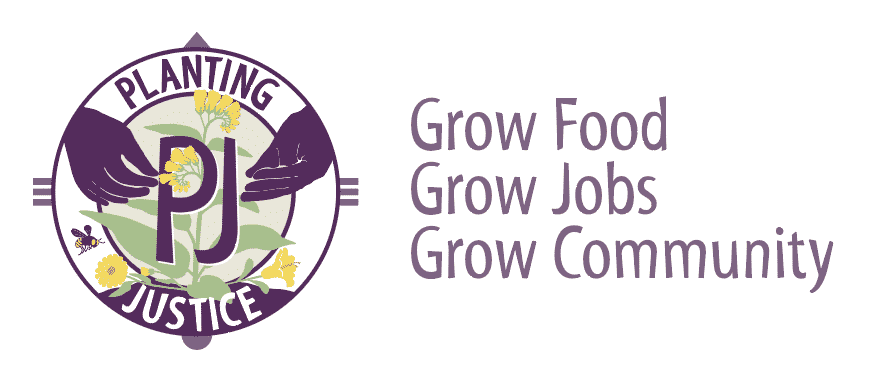
No one organization or leader can build the green economy alone. We are grateful to California Interfatih Power & Light for hosting the Oakland Green Jobs Summit. This summit created an opportunity for community leaders, clergy, and elected officials to “build a shared vision and strategy for an inclusive green economy in Oakland and the wider East Bay.” Planting Justice was thrilled to attend. We loved connecting with this diverse group of movers and shakers in the emerging green economy in Oakland!
The morning kicked off with speeches from local and state officials. Oakland City Councilmember Rebecca Kaplan reminded us that the Montgomery Bus Boycotts were just as much about access to well-paying jobs as they were about where Black bus riders could sit, emphasizing the need to “build economic opportunity as we build environmental sustainability.” Then we heard from non-profit and for-profit leaders who are working to grow the green economy and convert homes, companies and cities to 100% clean & renewable energy. Mike Brune of the Sierra Club provided a compelling frame for the day and for our collective work ahead: “the defining challenges of our time are economic inequality and climate change.”

City Slicker Farms!
Rodney Spencer, Executive Director of City Slicker Farms, gave a powerful presentation that had us cheering from the back row! Spencer spoke beautifully about the need to provide for and love on “problem children” from disenfranchised communities, and resource and support them to become the leaders of this new economy. “Problem children are actually gifted. They just need a good breakfast, and they need someone to tell them ‘I love you, you can do this,’” Spencer said. “These people we are marginalizing have skills and gifts to share.” Those skills & gifts are crucial for our survival in this historical moment! If you don’t know about City Slicker Farms already, definitely check out their work here.
After enjoying a delicious and nutritious vegan, locally-sourced lunch from Core Kitchen, we reconvened for afternoon breakout sessions. Planting Justice participated in the Land Use breakout group, where we discussed barriers and opportunities to accessing and maximize under-utilized land to grow food, expand green job opportunities, catch & store renewable energy, etc.
Our discussion quickly turned to the inequalities between the hills and the flatlands of Oakland, and the growing displacement crisis facing our region. Shayna Hirschfield-Gold, an energy policy analyst with the City of Oakland, shared with us that the Oakland hills enjoy 45% canopy cover (plenty of trees), the flatlands only have 5% canopy cover. This simple metric of tree-density has serious implications for physical, mental and emotional well-being!
We discussed the intersection of urban greening and displacement. How do we ensure that greening our neighborhoods doesn’t accelerate the displacement of vulnerable long-time residents? Our contribution to this discussion was that displacement is multi-faceted. Building affordable housing and protecting renters from rent hikes and evictions are key, but expanding access to living-wage jobs is another critical factor in preventing displacement. Black workers are unemployed at more than 3 times the rate of white workers in the Bay Area, and the unemployment rate for formerly incarcerated workers is almost 70%. When we look at who is getting displaced (25% of the Black population has been displaced from Oakland in the past 10 years), it’s clear that people need good jobs to be able to stay in their homes.

Graphic courtesy of CRC Media Corps
Planting Justice stressed the need to prioritize the creation of good jobs for Black residents, youth, and formerly incarcerated people in every urban greening project to ensure that long-time residents are able to reap the benefits of green investment in Oakland. We cited our work with the new nursery and aquaponics farm in Sobrante Park. One of the first things we did after we purchased that land is we hired 5 formerly incarcerated neighbors, 3 of whom live directly across the street from the site of our project. As one of our nursery workers, Chris Lockett, told the SF Chronicle, “A white man who didn’t know me from a can of paint hired me. Now I make $17.50/hr + benefits, my kids have health insurance, and we drink kale smoothies, no BS!” We have to break down barriers to employment for our historically disenfranchised neighbors, and we have to insist on living-wage jobs with health insurance as we build the green economy in Oakland.
Economic inequality and the climate crisis are connected. We can’t keep extracting dirty coal and oil from our environment, and we can’t keep extracting labor from workers to concentrate all the profits of that labor for a few people at the top. That way of life is literally killing us. Thank you to California Interfaith Power & Light for providing a space for us to dream together about a new kind of economy, one that honors and sustains both our people and our planet.

0 Comments